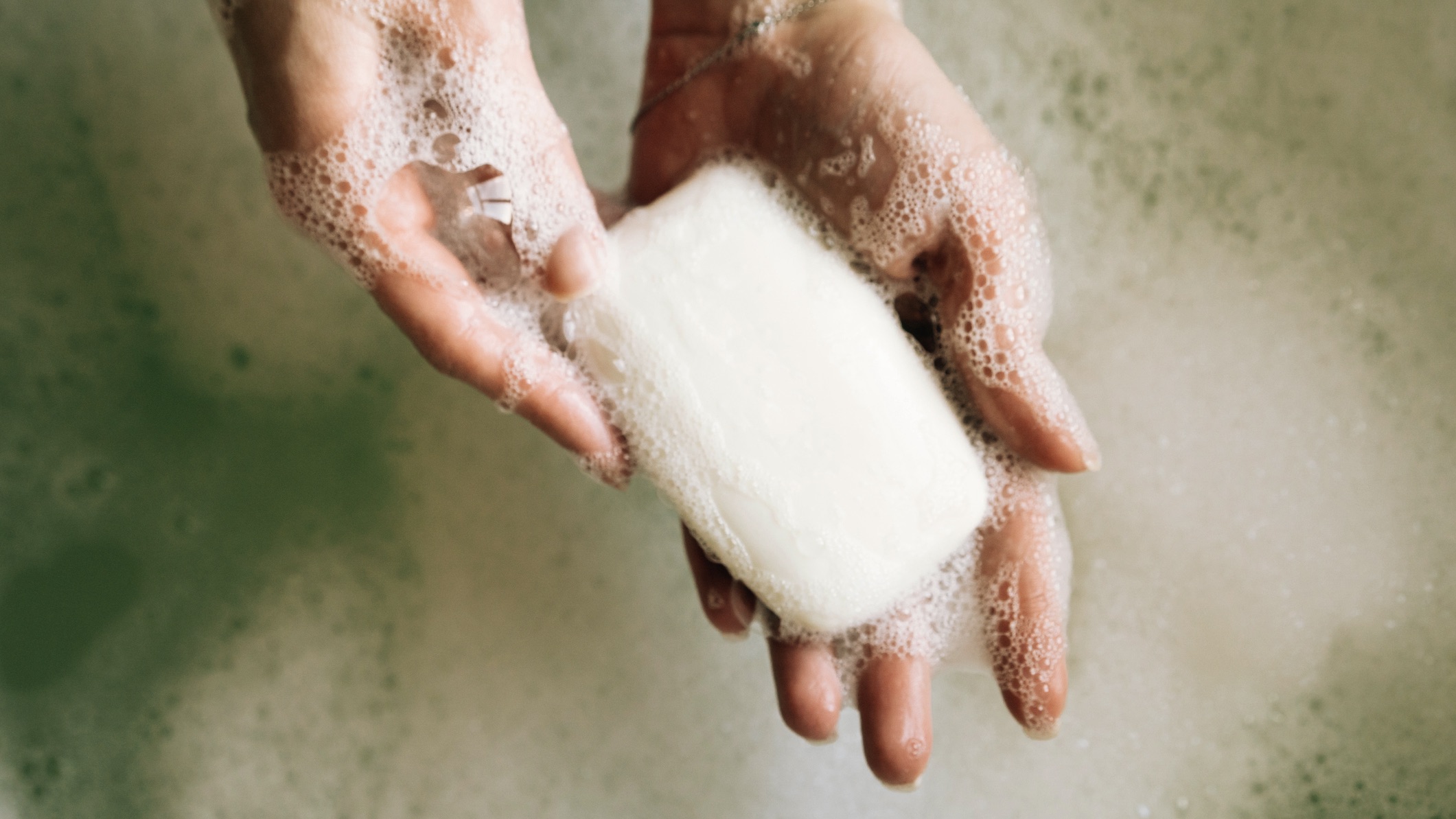Young teen wins top science prize for soap that can treat skin cancer
Memory of Ethiopian workers out in the sun inspired US schoolboy to make cell-reviving soap

A free daily email with the biggest news stories of the day – and the best features from TheWeek.com
You are now subscribed
Your newsletter sign-up was successful
A 14-year-old boy has been named "America's top young scientist" after developing a bar of soap that could help treat melanoma.
Heman Bekele, a ninth-grader from Virginia, won the 3M Young Scientist Challenge after pitching a bar of soap, called Skin Cancer Treating Soap (SCTS), made from compounds that could "reactivate dendritic cells that guard human skin", said The Guardian. This means they can fight cancer cells. He declared in his submission that he wanted to cure cancer "one bar of soap at a time".
Bekele moved to the US at the age of four, and his idea "came from the early years of his life in Ethiopia", said The Washington Post. He wondered how many people he'd seen working outside were "at risk of sun exposure" and his memories "fueled his decision to focus his research on skin cancer".
The Week
Escape your echo chamber. Get the facts behind the news, plus analysis from multiple perspectives.

Sign up for The Week's Free Newsletters
From our morning news briefing to a weekly Good News Newsletter, get the best of The Week delivered directly to your inbox.
From our morning news briefing to a weekly Good News Newsletter, get the best of The Week delivered directly to your inbox.
Bekele is a self-taught programmer, according to Wion, and he describes himself as "passionate about medicine, programming and making an impact".
He wanted his product to be something that was "as much of a constant in people's lives as possible" and was "most convenient and most trustworthy", he said. Creating a prototype with a combination of ingredients that could work effectively "took months of trial and error", and Bekele used "computer modeling to determine the formula". Although "similar creams and ointments exist", he doesn't believe soap has been used to fight cancers in their early stages, The Washington Post added.
Bekele hopes he can use the $25,000 prize to "refine his innovation", which costs $0.50 (40p) to make, and create a non-profit organisation "to distribute the soap to communities in need" in the next five years, said USA Today. This plan includes seeking approval from the Food and Drug Administration (FDA), said The Washington Post. Bekele added: "There is still a lot left to do."
A free daily email with the biggest news stories of the day – and the best features from TheWeek.com
Keumars Afifi-Sabet is a freelance writer at The Week Digital, and is the technology editor on Live Science, another Future Publishing brand. He was previously features editor with ITPro, where he commissioned and published in-depth articles around a variety of areas including AI, cloud computing and cybersecurity. As a writer, he specialises in technology and current affairs. In addition to The Week Digital, he contributes to Computeractive and TechRadar, among other publications.
-
 Democrats push for ICE accountability
Democrats push for ICE accountabilityFeature U.S. citizens shot and violently detained by immigration agents testify at Capitol Hill hearing
-
 The price of sporting glory
The price of sporting gloryFeature The Milan-Cortina Winter Olympics kicked off this week. Will Italy regret playing host?
-
 Fulton County: A dress rehearsal for election theft?
Fulton County: A dress rehearsal for election theft?Feature Director of National Intelligence Tulsi Gabbard is Trump's de facto ‘voter fraud’ czar
-
 Epstein files topple law CEO, roil UK government
Epstein files topple law CEO, roil UK governmentSpeed Read Peter Mandelson, Britain’s former ambassador to the US, is caught up in the scandal
-
 Iran and US prepare to meet after skirmishes
Iran and US prepare to meet after skirmishesSpeed Read The incident comes amid heightened tensions in the Middle East
-
 EU and India clinch trade pact amid US tariff war
EU and India clinch trade pact amid US tariff warSpeed Read The agreement will slash tariffs on most goods over the next decade
-
 Israel retrieves final hostage’s body from Gaza
Israel retrieves final hostage’s body from GazaSpeed Read The 24-year-old police officer was killed during the initial Hamas attack
-
 China’s Xi targets top general in growing purge
China’s Xi targets top general in growing purgeSpeed Read Zhang Youxia is being investigated over ‘grave violations’ of the law
-
 Panama and Canada are negotiating over a crucial copper mine
Panama and Canada are negotiating over a crucial copper mineIn the Spotlight Panama is set to make a final decision on the mine this summer
-
 Why Greenland’s natural resources are nearly impossible to mine
Why Greenland’s natural resources are nearly impossible to mineThe Explainer The country’s natural landscape makes the task extremely difficult
-
 Iran cuts internet as protests escalate
Iran cuts internet as protests escalateSpeed Reada Government buildings across the country have been set on fire